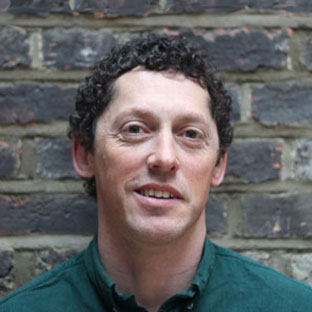The only consensus achieved during last week’s discussions about the UK’s baby boom was that yes, we are definitely having more babies. The facts can’t be denied; 813,000 babies were born in the UK last year, the highest number since 1972. With 254,000 more births than deaths over the year, and a smaller net migration gain, our population is rising faster than any other EU country.
Was It The Kate Effect? asked the Huffington Post. The data was for the year ending June 2012. So unless, post-royal wedding in 2011, people were desperately trying to have their babies before Kate did, the answer to that question is no.
Besides, this is a long term trend. After a trough at the turn of the millennium (when I remember my old boss wondering whether we needed something similar to the Swedish government’s infamous ‘f*** for the future’ campaign) the birth rate has been steadily rising since 2003. According to ONS statistics “there are 581,800 more zero to six year olds in mid-2012 than there were in mid-2001. The number of children aged 7 to 16 is 453,300 less than mid-2001.” This means that this September, secondary schools will see a further decrease in the number of Year Seven pupils, whilst the numbers starting primary school continues to rise – it’s not so much a ‘primary bulge’ as a moving feast, difficult to plan for, even if any government wanted to.
Leaving aside confused debates about possible consequences (with different pro and anti-migration lobbies drawing their own inevitable and vested conclusions), there has been almost no discussion about why more people in the UK are having more babies, and why this is happening here more than almost anywhere in the Western world. Mark Easton’s 2011 BBC report on Britain’s mysterious baby boom is the best analysis I have seen, but there is a lack of evidence or debate about the possible causes of what appears to have been a fundamental cultural shift.
Why has there been such a change in the behaviours of many adults? The rise in the percentage of births from mothers who weren’t born in the UK can only explain a small part of the growth. Was it working families tax credits? Possible, but unlikely. Defying the confused picture portrayed by statistically challenged Sadhbh Walshe, the birth rate has risen across all social groups. Recent data from the US shows that, in the last ten years, childlessness rose amongst all women, but fell for women with Advanced Degrees from 31% to 24%. My hunch, and it’s evidence free, was that the New Labour’s renewed focus on and provision for the early years has fundamentally changed the atmosphere – call it ‘mood music’ if you like- in the UK around children and society. Policies, regulations and funding probably didn’t directly change behaviour, but created a climate where becoming a parent, or having one more child than you thought you might, seemed like a more rational choice. This is not a party political point; the previous government never aimed to manufacture a baby boom, and even if this had been its intended impact, there is no agreement about whether this is good or bad news for UK plc, public services, or environmental sustainability.
Returning to certainties and the tenuous link to my tenuous title. When my own kids attempt one of their frequent pester-sessions about getting a kitten, I either respond by re-declaring my ‘one in, one out policy’ for living things in our house, or I remind them of the old cliché that ‘the trouble with kittens is they grow into cats’ (I think Charlie Brown said it first).
Yes, babies get older, so in about four years time we will be coping with a significant growth in the number of teenagers in our schools, on our streets and online. The New Scientist’s recent article on ‘youth bulges’ in developing countries shows how a rise in the number of teenagers can ‘make or break a country’, creating opportunities for both conflict and economic growth. The UK is, of course, at a different stage of development, and the growth in the youth population won’t be huge. But whatever you think of teenagers, you’d better get used to the fact there will soon be more of them around for a while.
Over the autumn, we will be working with RSA Fellow and Education Associate Barbara Hearn to scope a new project to rethink adolescence and its ‘hidden wealth’. Synthesising research from a number of disciplines, we will explore options for a longer-term Inquiry to reframe public discourse about the adolescence phase, focusing on the ‘asset-value’ of adolescence while acknowledging the inevitable fragilities. We are especially interested in talking to Fellows and others who have been working with teenagers in various contexts. Rather than telling us whether your interventions are working, we want to know what your interventions might be telling us about the changing nature of adolescence. Comment here, or email education@rsa.org.uk.
Joe Hallgarten, Director of Education @joehallg.

Join the discussion
Comments
Please login to post a comment or reply
Don't have an account? Click here to register.
Great title even if it comes from Charlie Brown. Also like the lines: ‘youth bulges’ in developing countries shows how a rise in the number of teenagers can ‘make or break a country’, creating opportunities for both conflict and economic growth. The UK is, of course, at a different stage of development, and the growth in the youth population won’t be huge. But whatever you think of teenagers, you’d better get used to the fact there will soon be more of them around for a while.
Thank you.